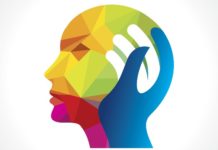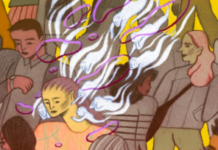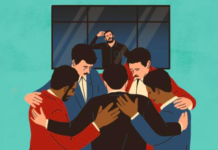World Mental Health Day
In this piece written in honor of World Mental Health Day, Peter Kinderman emphasizes the importance of challenging the biomedical model of mental health and paying...
Many Foster Kids Are Still Being Prescribed Antipsychotic Drugs
Many experts expressed concern when the rate of antipsychotic prescriptions to children in foster care showed a rapid increase, peaking in 2008, and new recommendations and policies have tried to curb the use of these drugs. While the rate has plateaued, a new study points out that the “new normal” prescription levels are still dangerously high. The data reveals that almost one in ten children in foster care are currently being prescribed antipsychotic drugs with dangerous side-effects, many for diagnoses like ‘ADHD’ and disruptive behavior.
The Paradox of White Americans’ Mental Health
Are White Americans’ poor mental health outcomes caused by Whiteness?
Listening to, Rather Than Trying to Fix, My Suicidal Wife
From The Guardian: One man shares how listening to his wife when she experienced suicidality, rather than rushing to action or attempting to dissuade her...
Married Individuals with Schizophrenia Show Better Outcomes, Study Finds
14-year study of a rural sample in China shows those who were married had higher rates of remission from schizophrenia.
“Why So Many Smart People Aren’t Happy”
The Atlantic interviews Raj Raghunathan about his new book, If You’re So Smart, Why Aren’t You Happy? “If you were to go back to the...
Collaborative Care Effective for Older Adults with Depressive Symptoms
A new study suggests that depressive symptoms in older adults can be improved with non-invasive behavioral activation techniques. These approaches appear to have a preventative effect, serving to prevent further depressive symptoms from developing.
The People with Psychosis Embracing the Voices They Hear
In this piece for Vice, Laetitia Laubscher discusses the Hearing Voices Network, a non-medical approach to hearing voices and experiencing extreme states.
"...a key goal...
Childhood Adversity May Increase Risk of Suicide
Swedish study suggests experiencing adversity in childhood is linked to dying by suicide as an adolescent or young adult.
In Case You Missed This
On November 12th, 2015, the third anniversary of the day that I abruptly stopped taking benzodiazepines, my dear friend, J. Doe, published a two-part article here on Mad in America examining the language that is commonly used to describe benzodiazepine (benzo) iatrogenesis. I wanted a summary of these articles captured in a Youtube video so that those in the thick of benzo neurotoxicity could tune into these ideas in a way that might be more easily digestible. I hoped more benzo sufferers would begin to question how they describe (and allow others to describe) an illness that remains decades behind in understanding and recognition. I also wanted to draw attention to the content again in hopes that more medical professionals would read and understand the crucial distinctions in language surrounding this problem.
RAISE Study Out Of Sync With Media Reports
Writing on his 1 Boring Old Man blog, Dr. Mickey Nardo reflects on the media frenzy around the RAISE study and asks why the prescription data has not been released. He adds skepticism about the political motives of the potentially overblown results, which he sees as a clear push for increased mental health funding.
Mental Health Recovery Narratives Play Central Role in Trauma-Informed Care
New research synthesizes insights from 45 studies to construct a conceptual framework relating different elements of recovery narratives to trauma-informed approaches to care.
Psychics Who Hear Voices Could Be on to Something
In this piece for The Atlantic, Joseph Frankel compares and contrasts the voice-hearing experiences of self-described psychics and mediums with the experiences of people diagnosed with...
Judi Chamberlin and the Fight Against Institutionalizing Women
In this piece for Rooted in Rights, s.e. smith chronicles the life of Judi Chamberlin and discusses the important role she played at the intersection of...
Searching for Zen and Finding a Cow
If I had a clinical problem, why was something as ancient and simple as meditation helping me? And if normal positive human habits could be so profoundly useful, why the heck was the field marketing pills and “clinical” coping mechanisms to me instead? This frustration helped me jump ship from the medical mindset and hop into the world of humanity.
Anyone Can Be Trained to Hallucinate
From Flipboard: In a recent study on auditory hallucinations, all participants — not just those who had been diagnosed with psychosis — experienced conditioned hallucinations. The study...
Study Finds Improved Functioning for ‘Schizophrenia’ Without Antipsychotics
Long-term treatment with antipsychotic drugs is currently considered the standard treatment for patients diagnosed with ‘schizophrenia.’ A new study challenges this practice, however. The...
“I would not tell people when my voices were still very loud”
Mae Harden is interviewed by Philly.com about her years of attempting to medicate away the voices she was hearing in her head, while hiding...
Parachute NYC Peer Support Program Presents Challenges and Opportunities
Anthropologists study Parachute NYC to identify challenges and opportunities for implementing peer support and Open Dialogue practices.
Study Explores Sexual and Intimate Partner Violence in College Women with Disabilities
A new study explores sexual violence and intimate partner violence in college women with mental health related disabilities.
This is Why Today’s Young Men Feel So Lonely
In this piece for The Times, Josh Glancy reflects on the difficulty that many men experience in forming meaningful friendships, finding community, and building emotional...
How a True-Crime Podcast is a Mental-Health Support Group
From The Atlantic: A true-crime podcast has played an important role in improving some listeners' mental health and sense of community.
"There’s a deeper connection, however,...

























